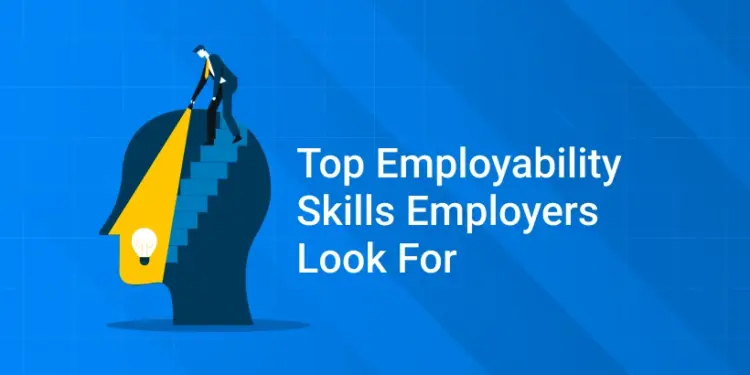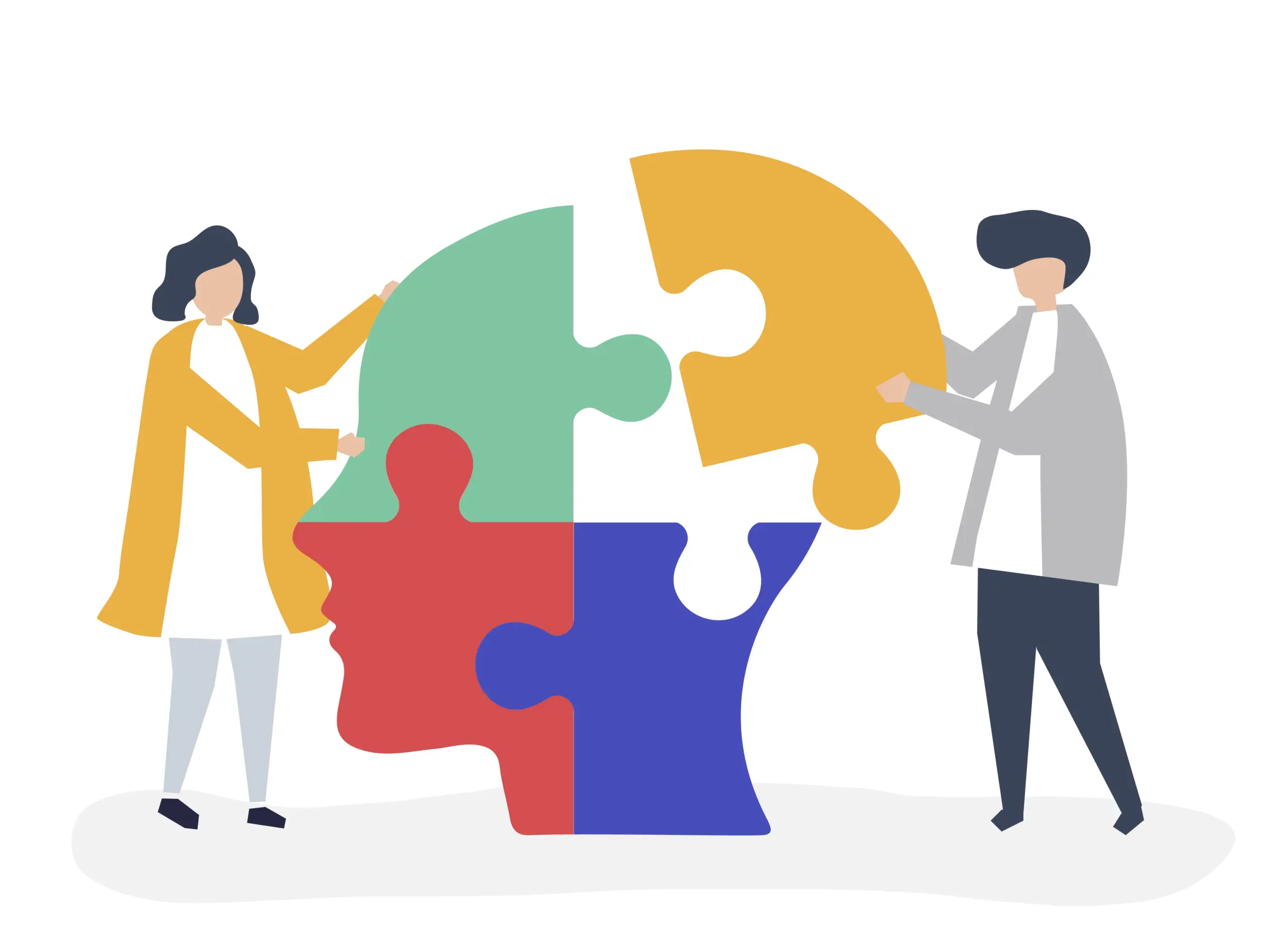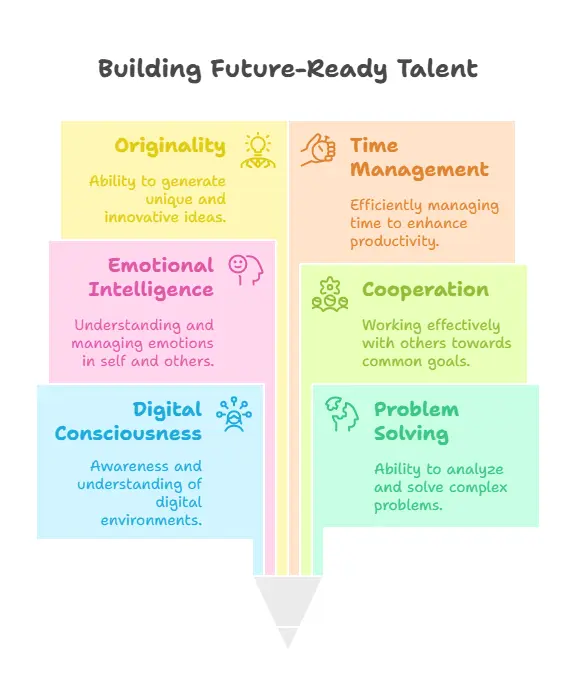Table of Contents
The workplace is changing more quickly than it has ever done. The abilities that made you employable a few years ago might not be sufficient in 2026 as remote work, artificial intelligence, and automation all become more common. Companies are looking for agile, forward-looking workers who can adapt, communicate, and flourish in a technologically driven environment – not only for degrees or technical skills. What then will it take to be really employed in 2026?
Introduction
The current job market prioritizes adaptable workers who blend human-centric soft skills with AI-driven technical abilities. Also they are driven by rapid tech advances and hybrid work models. Employers now value skills like AI literacy and emotional intelligence over traditional degrees alone. This is especially the case in India where employability depends on practical expertise.
Developing the appropriate abilities will help you stand out whether your path is ascending the ladder, switching jobs, or entering the workforce. In this blogpost, let’s explore the top employability skills employers look for in 2026.
Enhance your data science skills with us! Join our free demo today!
Why Skills Matter Now
Workplaces evolve fast with AI automation handling routine tasks, leaving demand for creative problem-solvers and tech-savvy team players. In India and Kerala, youth employability rises with focus on AI, data analytics, and communication, as firms shift to skills-first hiring. Building these ensures career resilience amid gig economy growth and green transitions.
Boost Your Skills & Kickstart Your Career!
Employability and Personality Development Course by Entri App: Enhance your communication, confidence, and job-ready skills to excel in your career.
Join Now!Core Employability Skills
Employers seek a mix of timeless soft skills and emerging tech proficiencies. Top lists from 2026 reports highlight analytical thinking, AI integration, and adaptability as must-haves.
| Category | Key Skills | Why Employers Want Them |
| Soft Skills | Critical thinking & problem-solving
Adaptability & resilience Emotional intelligence (EQ) Communication & collaboration Leadership & social influence |
Boost teamwork, innovation, and handling hybrid/remote setups; 89% of Indian firms prioritize communication. |
| Tech Skills | AI & machine learning literacy
Data analysis & storytelling Cybersecurity basics Technological/digital literacy Cloud computing |
Drive decisions in data-heavy roles; AI/big data tops growth at 87% through 2030. |
| Emerging Skills | Creative thinking
Continuous learning mindset Sustainability awareness |
Fuel innovation where AI falls short; key for India’s green job surge. |
Top Employability Skills for 2026
Digital Consciousness
Knowing how to use technology is basic in a society going more and more digital. This covers knowledge of software tools, cloud platforms, simple coding, and how data and artificial intelligence affect corporate decisions.
Companies want you to use digital technologies boldly and support a tech-savvy work environment.
Problem Solving & Critical Thinking
This ability entails situational analysis, identification of problems, and development of sensible, statistically based answers. It’s about creatively and effectively solving problems, not only about detecting them.
Businesses respect those who can make wise, reasonable decisions and act on their own will.
Versatility & Flexibility
Change is the only thing certain in the workplace of the future. From changing responsibilities to adopting new skills, flexibility guarantees you remain relevant no matter how the workplace changes.
Companies desire workers that welcome change rather than oppose it.
Good Transmission of Ideas
More than ever, clear vocal and written expression of your thoughts is crucial. This covers presenting, email writing, and attentive listening in team meetings.
Good communication lowers mistakes, fosters confidence, and increases output.
Cooperation and Group Work
The office of today is more linked and varied. Whether in-person or virtually, companies desire people who can collaborate peacefully with others and help team goals to be reached.
Most projects call for the involvement of several departments, hence cooperation guarantees better implementation.
Originality & Imagination
Although machines can handle monotonous chores, human advantage still comes from creative thinking. Companies appreciate original ideas, innovative approaches, and an attitude toward innovation.
Companies prosper when employees provide creative ideas that lead to better products or services.
Initiating and Leading
Not only are managers leaders; there is more involved in leadership. Even without a formal title, employers seek proactive people who take initiative, encourage others, and lead teams toward outcomes.
Strong leaders enable teams to remain focused, driven, in line with their objectives.
Time Handling
Remote and hybrid offices need for great time management. Being a successful professional mostly depends on task prioritizing, goal planning, and discipline maintenance.
Good time management guarantees both work-life balance and meeting of deadlines.
Data literacy
Understanding, interpreting, and communicating data are absolutely essential abilities in a data-driven world. Though learning how to use data for decision-making is essential, this does not mean one becomes a data scientist.
From marketing to HR, every department depends on data to raise standards of performance.
AI Literacy and Tech Proficiency
Master basic AI tools like ChatGPT or Copilot for workflows, plus data interpretation—no need for PhD-level coding. In Kerala’s IT hubs, AWS cloud and cybersecurity skills command high demand for roles in data science and automation. Practice prompt engineering to integrate AI.
EQ: Emotional Intelligence
EQ is your capacity for empathy with others and emotional awareness and control. Working in mixed teams, handling conflict, and leading with compassion all depend on it.
Strong interpersonal ties and a good corporate culture are created in part by a high EQ.
Enhance your data science skills with us! Join our free demo today!
Skill Comparison: Soft vs. Tech
Soft skills endure AI disruption, while tech skills offer quick entry. Balance both for top pay.
| Aspect | Soft Skills Edge | Tech Skills Edge |
| Demand Growth | High (e.g., EQ, leadership: 61-67%) | Explosive (AI: 87%, cyber: 70%) |
| Salary Boost (India Avg) | ₹10-18 LPA (project mgmt) | ₹15-25 LPA (AI/cloud) |
| Learning Curve | Practice via teams/experience | Courses (3-6 months) |
| Future-Proofing | Handles human elements | Evolves with tools |
Boost Your Skills & Kickstart Your Career!
Employability and Personality Development Course by Entri App: Enhance your communication, confidence, and job-ready skills to excel in your career.
Join Now!Key Takeaways
- Prioritize AI literacy alongside EQ to stand out in 2026’s hybrid market.
- India’s job scene favors practical skills over degrees; Kerala’s IT focus amplifies tech needs.
- Continuous upskilling via short courses ensures 56%+ employability rates.
- Balance soft/tech mix: Use tables like above to self-assess gaps.
- Action step: Audit your LinkedIn skills section with 2026 keywords today.
Conclusion
Boost Your Skills & Kickstart Your Career!
Employability and Personality Development Course by Entri App: Enhance your communication, confidence, and job-ready skills to excel in your career.
Join Now!Frequently Asked Questions
Are soft skills more important than technical skills?
They’re equally important. In many cases, soft skills like communication and adaptability can give you an edge—even if you’re technically competent.
Is digital literacy only for IT jobs?
No! Every industry—marketing, finance, education, healthcare—now uses digital tools. Being digitally literate is essential for all professionals in 2026.
Do I need all these skills to get hired in 2026?
Not necessarily. However, developing a balanced mix of technical, soft, and digital skills will increase your chances of landing—and keeping—a job.
Are employability skills the same as life skills?
They’re related but not identical. Life skills are broader and cover daily living (e.g., budgeting, cooking), while employability skills are workplace-specific and focus on what makes someone a valuable employee (e.g., teamwork, communication, digital literacy).
Will AI or automation replace the need for these skills?
AI can handle repetitive tasks, but human skills like creativity, empathy, decision-making, and communication cannot be easily replaced. These are exactly the skills that will remain in high demand—even in an AI-powered future.













